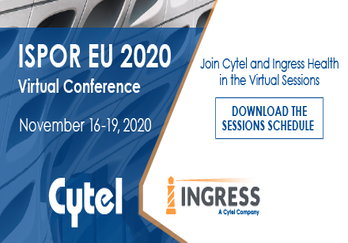Role of RWA in Transforming Oncological Research

In oncology, many manufacturers go into niche indications, where there are very specific tumors, and then they opt for a single arm trial. This potentially works for regulatory purposes (EMA/FDA). However, if they go to the local HTA authorities (NICE/CADTH), they will have to answer the question on the relative effectiveness of the new product compared to the standard of care in that country, and then its cost-effectiveness. Hence, typically, a manufacturer will identify a publication on a trial or real-world evidence on standard of care, or perhaps collect individual patient level data in clinical practice. Subsequently, it will conduct comparative effectiveness analyses for HTA purposes, a naïve comparison or an unanchored MAIC/STC/PSM of the single arm trial compared with the control arm.
Health authorities like NICE/CADTH are continuously updating their requirements for submissions. We feel that methods developed for target trial emulations will transform how synthetic trial arms are designed for single arm studies as well as, comparative effectiveness analysis based on real-world evidence.
The target trial emulation approach is a novel approach towards the design of observational analyses that was developed by Miguel Hernan and Jamie Robins who are professors at Harvard University. These are based upon a study protocol for the hypothetical randomized trial that one would like to conduct and a study protocol describing how this hypothetical trial will be emulated using observational data. It is a much better methodology than what was being used in the past for comparative effectiveness analyses based on real world evidence.
Other Cytel RWA solutions for oncology
There are several new therapies today that bring value to the patients in terms of being curative or leading to long-term survival. Whereas, in the past, chemotherapy increased survival by only three months. This is a great change, especially with the introduction of more curative therapies such as, immune-oncology, neoadjuvant therapies, STEM cell transplantation, gene therapies etc. We can observe that a selection of patients receiving these treatments have long-term survival. Consequently, the proportional hazard (PH) assumption, based on which the drugs are evaluated on their effectiveness, may no longer hold. However, typically, the relative efficacy of a drug is evaluated based on the Cox proportional hazard ratio (HR). For instance, the ESMO and ASCO frameworks consider the HR and/or difference in median (progression free) survival to evaluate whether a drug brings sufficient added value. The HR is also used as an outcome to indirectly compare relative efficacy of therapies that were not compared in the same trial, in network meta-analyses and subsequently health economic models. However, if the PH assumption does not hold, the HR might underestimate or overestimate the relative effectiveness and consequently, also the relative value a therapy brings. So, comparative effectiveness analyses based on trials and network meta-analyses should consider other advanced statistical techniques to establish the true added value that novel therapies bring in terms of cure or long-term survival.
To ensure the value of the drug is captured appropriately, Cytel is developing these methods for trial analyses and network meta-analyses, and corresponding frameworks to select the appropriate statistical network meta-analysis technique (e.g. parametric NMA, spline, piecewise, fractional polynomial, and mixture and non-mixture cure NMAs).
One of the other RWA areas we are looking at is how to adjust subsequent therapies in clinical trials to reflect local clinical practice with treatment switch methodologies. This will ensure the relative overall survival of the trial reflects clinical practice, which is important for health economic modelling purposes and corresponding reimbursement decisions.
Finally, in oncology, pivotal trials are typically powered to show a significant effect on progression free survival (PFS), as at regulatory and subsequent HTA submission, the overall survival data might not be mature. For HTA the absolute and relative survival are one of the key drivers of cost-effectiveness and therefore, important for reimbursement decision. If the extrapolations are uncertain, the ICER is uncertain and therefore potentially also the reimbursement outcome. Cytel is also developing methodologies on how to use mature real-world evidence and/or trial data to inform survival extrapolations in immature trial data in a Bayesian framework, with an aim to generate clinically plausible extrapolations for health economic modelling purposes.
Join Cytel and Ingress Health at Virtual ISPOR Europe 2020. Our Real-World Analytics teams will be collaborating to deliver a number of interactive workshops, issue panels, posters and podiums to showcase their work and share innovative insights in HEOR, evidence generation, knowledge synthesis and decision analysis.


